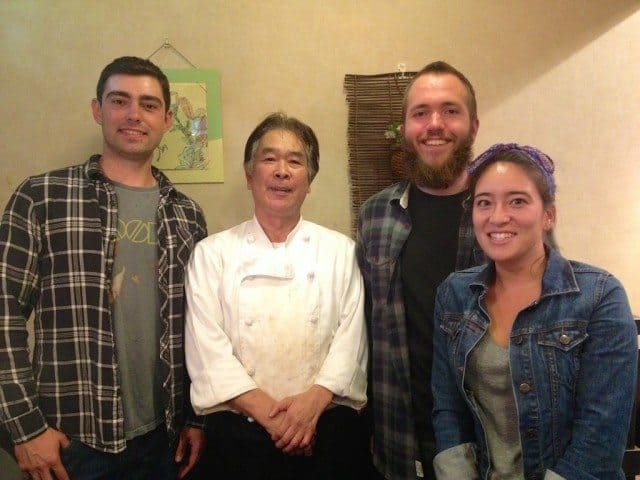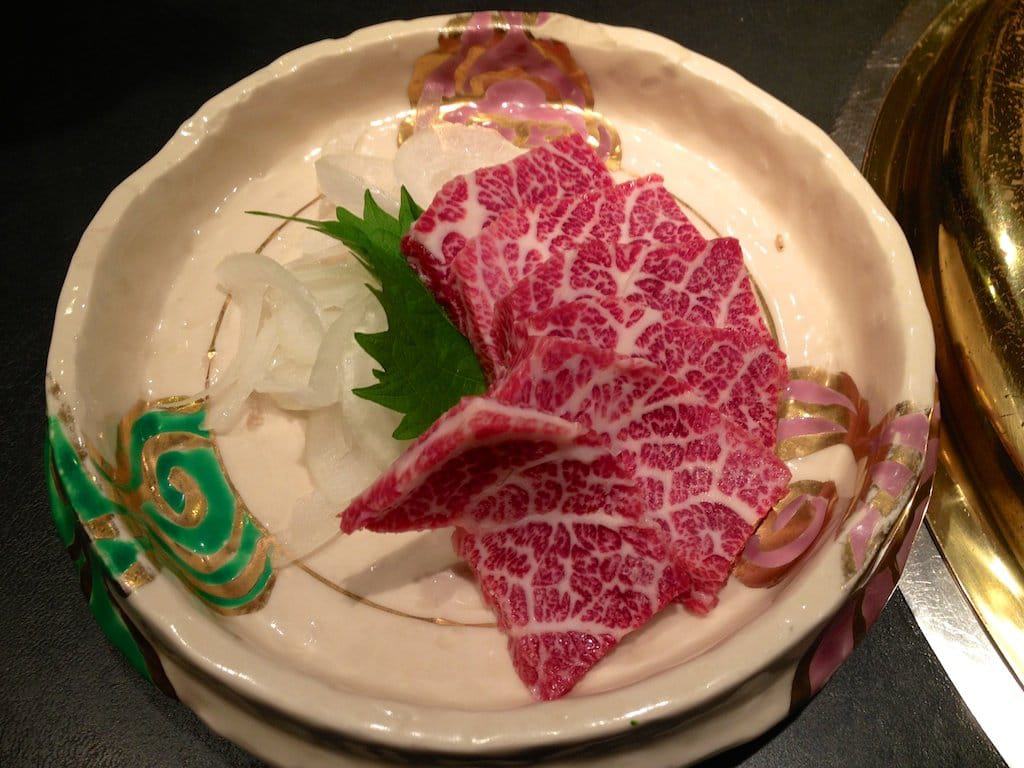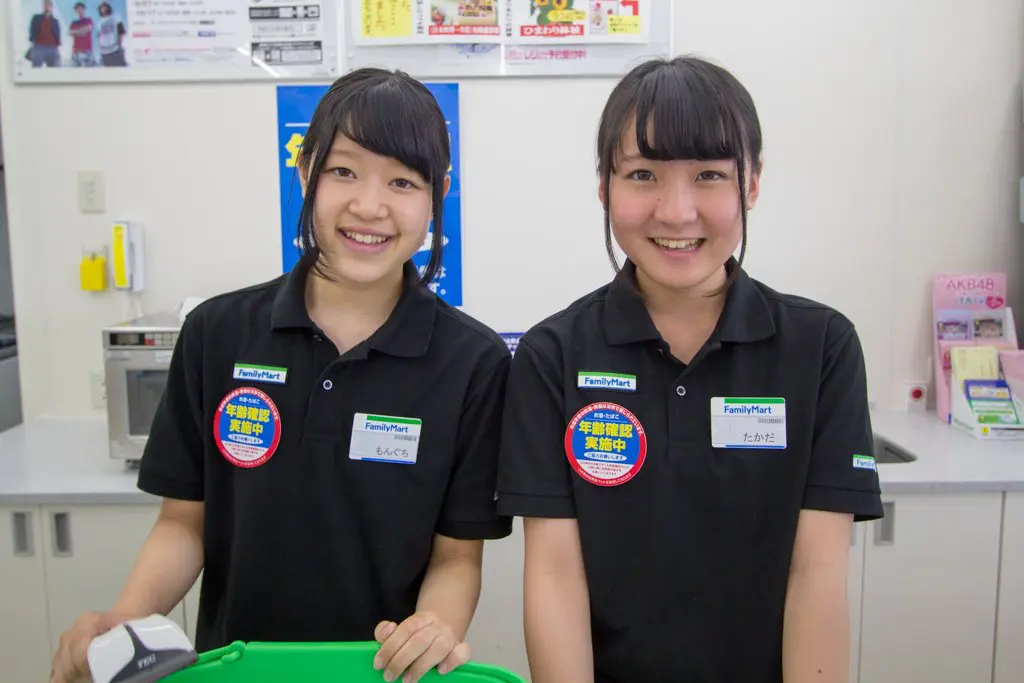Basashi: Eating Raw Horse Meat
Basashi.
Say it with me: bah-saw-she. Good.
And as the title of this post may have led you to believe, yes, it is what the Japanese call raw horse meat (and yes, it is for eating).
It is a specialty in Kumamoto, on Japan’s island of Kyushu, and luckily for me, Kumamoto is where I have found myself hanging around recently.
After enjoying a delicious, but less than filling bit of falafel (yes, I found falafel), I inquired with falafel-maker-san asking if he knew of a good place to get me some basashi. And it turns out I asked just the right guy. He directed me to a place a few blocks away where they had, “very good, but kind of expensive” basashi.
I figured if I was going to eat raw horse meat, then it might as well be good raw horse meat; so I was rather glad to hear that it was not going to be the McDonald’s of raw and potentially dangerous meats.
The Taste
Typically basashi is dipped in soy sauce and served with garlic or Japanese horseradish (only fitting).
So what does it taste like?
Well, basashi is served cold (near-frozen in the middle) and is intended to be eaten this way (has something to do with deadly bacteria).
I could not help but imagine myself eating a horse the entire time I was chewing (an idea that American society has arbitrarily taught me to be wrong), and this surely had some effect on my opinion of the taste. If I believed that I was eating some other animal, then I might have felt differently about the flavor.
I guess I will just have to go eat more basashi goodness to know for sure.

Conclusion
If you can get over the mental hurdle of imagining yourself chowing down on a little pony, then the “disgusting factor” is relatively non-existent. Sure, you may have been taught growing up that eating or even handling raw meat is not something to be taken lightly, but ultimately you are not going to be served something that is going to kill you – so eat it.
For all my kosher friends out there, basashi is quite literally the opposite of what you would typically be permitted to eat (but hey, at least there’s no dairy), but should you (kosher or not) find yourself willing to take a chance with some exciting new food, then get yourself some raw horse meat.
Our chef came out to the table and talked with us a bit about Japan and our now-consumed meal. He was incredibly grateful to falafel-maker-san for having recommended the restaurant to us, and he wished us well on our continuing Japanese journeys.
“Now you can no more ride horse,” he says as we are about to walk out the door. Funny guy this one, funny guy.
The final word? Go out there and eat some horse.








“So what does it taste like?”
You tell me. You told us it was cold, that you imagined yourself eating a horse, and that you weren’t too disgusted. None of these describe the taste.
I guess you’ll have to try it yourself.
Once heard some pals said the raw horse meat actually great.
I’d have to eat horse meat cooked before I got the courage to eat it raw. If I don’t like it cooked, I doubt I would like it raw.
Just because you like something or don’t like something cooked doesn’t mean you won’t feel the same way about it raw, but if you’re saying this from a “mentally eating horse” point of view, then I get it.
Freezing doesnt kill bacteria. but basashi is excellent!
It doesn’t kill bacteria, but it inhibits its growth.
I ate it in Japan when I was maybe 18. I thought it was delicious. I think the waiter said it was horse carpatio. Not sure of the difference. But hey.. try anything! At least once
Confirmed, meat is delicious.
carpaccio is raw meat (beef , fish, or veal normally) sliced very thin and dressed with olive oil, a pinch of salt pepper, lemon and a bit of parmesan. So the tradition japanese presentation isnt exactly carpaccio, but the main ingredient is the same. So not much of a stretch to call it horse carpaccio
Yup, I know what carpaccio is. It is a family dish on my Italian side. The dish I was served in Japan had those ingredients for sure. The only one I don’t remember being in there was parmesan..It had a pretty similar taste to beef but different enough where you could tell…it was DELICIOUS! They also served Fugu blowfish…that was amazing. The chef was telling me they leave a little poison in the meat when they serve it….it gets you like high and euphoric..amazing. I need to get back to Japan!
Your phonetic pronunciation is way off. It is pronounced Bah-sah-she
You pronounce sah differently than saw?
Yeah it is different. Sah as in saying the word “tzar” without the “r”. Or else, it might sound like Americans listening “English” from a Britton. It’s like listening to British actors speaking American English toward American demographic in movies. Other than that their dialect return to normal.
“sah” is simply a phonetic representation of “saw”
If Ba = bah, then Sa = sah, because both syllables are pronounced with an identical vowel sound. G is correct.
Bah-saw-shi
I think most people would read ah and aw differently. Seeing as the ba and sa in basashi are rhyming syllables, (made with the あ vowel), I would expect most non-Japanese speakers would pronounce it incorrectly by reading your breakdown. But hey, write whatever you want.
I’ve yet to have horse steak, but I’ve often had horse in a cured sausage we eat here. Of course, you don’t get the clean horse meat flavor because the meat is mixed in with spices and other things.
Just one more thing to try before you die.
Sounds interesting, when I’m over in Japan I might try it out! Although I’m a bit hesitant about eating raw meat of any kind. Maybe I’ll stick to cooked horsemeat. (Besides, chances are some of the “meat” I’ve eaten in pies or burgers probably contains some percentage of horse)
And to all the horse lovers, unless you’re vegan who grows all of their own crops on their own land, you’re being hypocrites. I love it when someone tells me how horrible eating dog/horses/cats are, while chowing down on a burger made from the meat of a cow that likely suffered horribly before being slaughtered for food…
Cooked horse really just tastes like any other meat to me (but maybe that’s because I had it in curry).
I was hesitant about the raw meat too, but I figured it wouldn’t kill me (at least I hoped). People also eat raw egg in Japan, so that might be something else to try if the horse is too much for you.
We used to be able to have Orange Julius put a raw egg in your drink in the US. I dont think they do it any longer. Eating an egg with any of the white or yolk still runny has a risk of salmonella. But not much.
We used to be able to have Orange Julius put a raw egg in your drink in the US. I dont think they do it any longer. Eating an egg with any of the white or yolk still runny has a risk of salmonella. But not much.
The US Department of Agriculture considers it safe to use raw eggs if they are pasteurized.
Any actual real world proof to back this up, or should we just assume you are the horse meat expert sheriff of the internets? You know some cows, pigs and chickens are treated inhumanly, and then some aren’t. If I write an blog about eating bacon how do you know which one I consumed, Tina? Seems like you might be the ignorant one.
Read some of Paula’s comment history. Dealing with a real brainiac here.
Tina! Thank you so much for your insight. It’s wonderful to see people voicing their opinions on the free and open forum of the internet. I now see the error in my ways. My decision to illegally traffic defeated racehorses across international borders to be sold to evil kill buyers and turned into meat (delicious, drug loaded meat) was perhaps not my best.
Glad to hear you’re praying for me and the rest of us selfish misinformed.
<3
Hi Paula! Thanks for your comment. Of course we don’t eat OUR horses, we eat other people’s horses (duh); however, this is undoubtedly a very complex topic and so I can understand where you might have misunderstood.
Also, I don’t quite understand how you would manage to starve to death if you had to eat horse meat (meat is quite filling, after all), but I do find your outburst incredibly entertaining. Thanks for giving me a reason to smile today 🙂